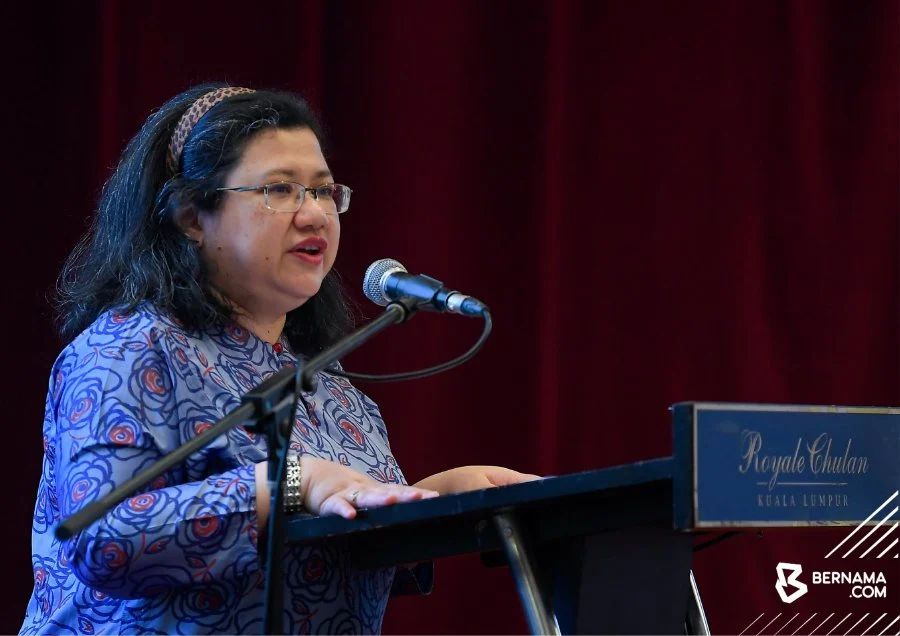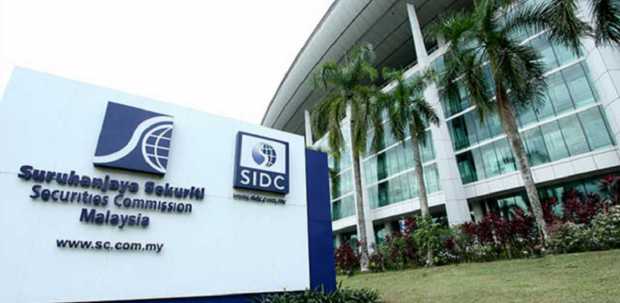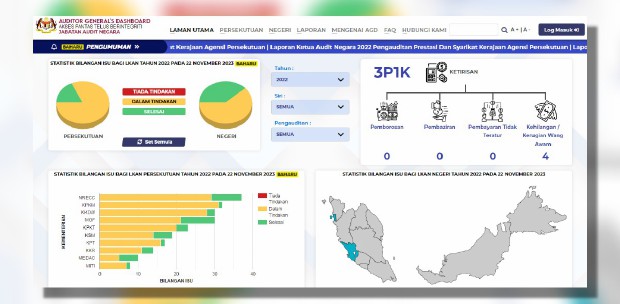The Auditor General Datuk Wan Suraya Wan Mohd Radzi has stated that financial statement audits of government entities are the core priority for the National Audit Department (NAD) starting this year, to address the issues of non-compliance and internal management shortfalls.
"The rationale for this is to respond to the concern by the government over instances of non-compliance and internal control weaknesses that are repeatedly mentioned in the annual audit reports in the past," she added.
The Auditor General's audit comprises amalgam of financial audits and internal audits. In the private sector, the external conduct the financial audits and the internal auditors conduct the internal audits.
During the course of their work, the external auditors may place reliance on the internal audit findings after having evaluated the competency and capability of the internal audit function.
But an internal audit function often ends up only as good as the audit committee that leads it.
The internal audit function is a critical component of an organization's governance structure, responsible for providing independent and objective assurance on the effectiveness of risk management, control, and governance processes.
They play an important role in that they provide independent assurance on risk, governance, and controls – three things which are essential to the success of an organisation.
However, the effectiveness of the internal audit function is closely tied to the strength and capabilities of the audit committee.
The audit committee plays a pivotal role in shaping and overseeing the internal audit function, influencing its independence, objectivity, and overall impact on organizational performance. In this context, several key factors contribute to the notion that the internal audit function is only as good as the audit committee.
Independence and Objectivity: A robust internal audit function must operate independently to provide unbiased assessments of an organization & operations.
The audit committee acts as a safeguard to ensure the autonomy of the internal audit function.
If the audit committee lacks independence or is compromised, it can lead to undue influence on the internal auditors, compromising their ability to provide objective and impartial evaluations.
The strength of the audit committee in upholding and protecting the independence of the internal audit function is paramount to its effectiveness.
Appointment and Oversight of Chief Audit Executive (CAE): The audit committee is typically responsible for appointing and overseeing the Chief Audit Executive (CAE), who leads the internal audit function.
The committee & ability to select a qualified, experienced, and competent CAE is crucial to the success of internal audit activities.
A weak audit committee may fail to recognize the importance of a capable CAE or succumb to external pressures in the selection process, resulting in an internal audit function that lacks the necessary leadership and expertise.
Resource Allocation: Adequate resources are vital for the internal audit function to fulfil its responsibilities effectively.
The audit committee plays a pivotal role in approving budgets, staffing levels, and other resources required for the internal audit team. If the committee does not prioritize and allocate sufficient resources, the internal audit function may be hampered in its ability to conduct thorough and timely audits, ultimately diminishing its value to the organization.
Risk Management Oversight: The audit committee is responsible for overseeing the organization& risk management processes. A strong audit committee actively engages with the internal audit function to understand and address emerging risks.
In contrast, a weak committee may not appreciate the significance of certain risks or may not adequately respond to the internal audit findings, resulting in ineffective risk management and control measures.
Communication and Collaboration: Effective communication and collaboration between the audit committee and the internal audit function are essential for success.
A proactive and engaged audit committee fosters an environment where internal auditors feel comfortable raising concerns and reporting findings.
A committee that is disengaged or unresponsive may hinder the flow of information, impeding the internal audit function's ability to address issues in a timely manner.
Ethical Oversight: Upholding ethical standards is fundamental to the internal audit function.
The audit committee sets the tone for ethical behaviour within the organization and must actively promote a culture of integrity. If the audit committee fails to prioritize ethical conduct or turns a blind eye to ethical lapses, the internal audit function may struggle to maintain its credibility and independence.
The effectiveness of the internal audit function is intricately linked to the strength and capabilities of the audit committee.
The committee's role in safeguarding independence, appointing competent leadership, allocating resources, overseeing risk management, facilitating communication, and upholding ethical standards is paramount.
A robust audit committee enhances the internal audit function's ability to contribute to organizational success by providing valuable insights and assurance on governance, risk management, and control processes.
Therefore, the saying holds true: the internal audit function is only as good as the audit committee that oversees it.
*The writer is a former chief executive officer of Minority Shareholders Watch Group and has over two decades of experience in the Malaysian capital market





